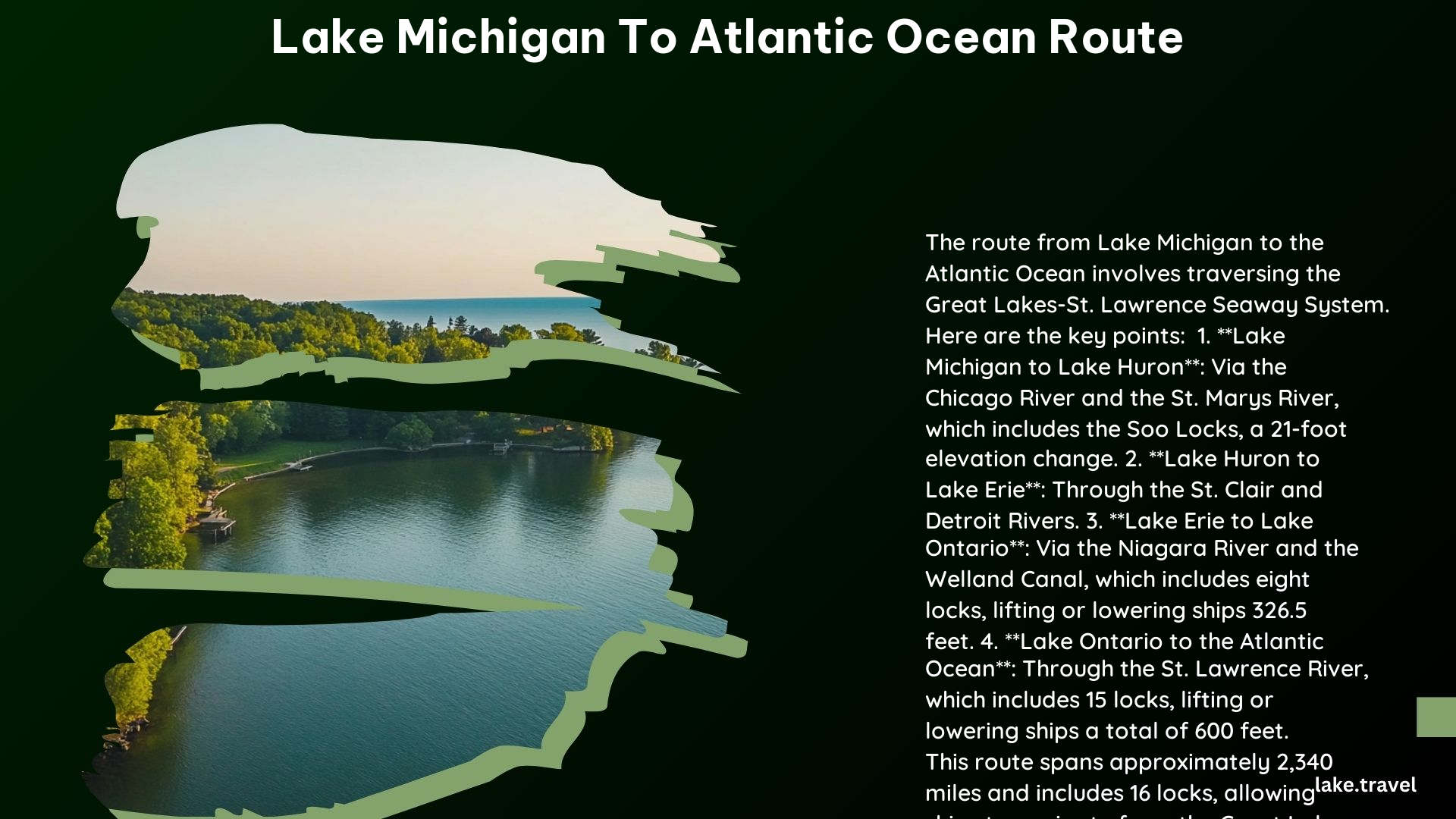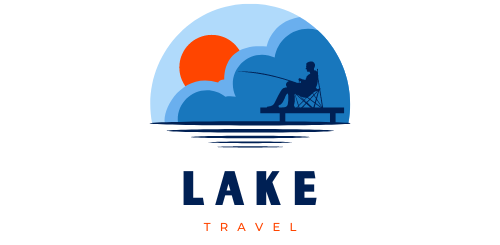The Lake Michigan to Atlantic Ocean route is a captivating journey that allows adventurous boaters to traverse the Great Lakes, connecting waterways, and ultimately reach the vast Atlantic Ocean. This comprehensive guide will explore the two primary routes – the St. Lawrence Seaway and the Mississippi River route, including the Ten-Tom Waterway – providing you with the essential information to plan your unforgettable voyage.
The St. Lawrence Seaway Route

- Starting Point: Lake Michigan
- Route: Exit Lake Michigan via the Chicago River and head east through the Great Lakes Waterway, passing through Lake Huron, Lake Erie, and Lake Ontario.
- Locks and Canals: The St. Lawrence Seaway includes 15 locks, with a minimum vessel size requirement of 20 feet and 1 ton. The locks are managed by the U.S. Army Corps of Engineers and the Canadian government.
- Scenic Highlights: The route passes through the picturesque Thousand Islands area of Ontario and along the coast of Maine.
- Advantages: This route allows for a more direct journey to the Atlantic Ocean and offers scenic views of the northeastern Canadian provinces and the Maine coast.
- Timing: It is advisable to start this route early, around July 1 or sooner, due to the extra mileage required.
The Mississippi River Route (including the Ten-Tom Waterway)

- Starting Point: Lake Michigan
- Route: Exit Lake Michigan via the Chicago River and head south through the Des Plaines River, Illinois River, and Mississippi River.
- Ten-Tom Waterway: The route includes the Ten-Tom Waterway, which connects the Tennessee River to the Tombigbee River, allowing vessels to reach the Gulf of Mexico.
- Scenic Highlights: The route passes through the heartland of the United States, offering views of the Mississippi River metropolis and the southern states.
- Advantages: This route allows for a later start, as it is a downstream run, and offers easy access to the Gulf of Mexico and the Panama Canal.
- Timing: This route can be started later, as it is a downstream run, making it a viable option for those who cannot start in July or August.
Key Differences Between the Routes
- Distance and Time: The St. Lawrence Seaway route is longer and requires more time, while the Mississippi River route is shorter and faster.
- Scenic Highlights: The St. Lawrence Seaway route offers scenic views of the northeastern Canadian provinces and the Maine coast, while the Mississippi River route passes through the heartland of the United States.
- Timing: The St. Lawrence Seaway route requires an early start, while the Mississippi River route allows for a later start due to its downstream nature.
The Ten-Tom Waterway’s Role
The Ten-Tom Waterway is a critical component of the Mississippi River route, connecting the Tennessee River to the Tombigbee River and allowing vessels to reach the Gulf of Mexico. It is a treasured inland water resource for southern boaters and provides an alternative route to the Atlantic Ocean.
Cost and Timings
- St. Lawrence Seaway Tolls: The toll for pleasure craft per lock is $30 in both U.S. and Canadian locks.
- Mississippi River Tolls: Tolls vary depending on the waterway and lock systems used.
- Timing: The St. Lawrence Seaway route typically takes longer due to its greater distance, while the Mississippi River route is shorter and faster.
Directory and Hours
- St. Lawrence Seaway: The Seaway is open 24/7, but lock hours vary depending on the location and season.
- Mississippi River: Lock hours and availability vary depending on the location and season.
Rates and Value
- St. Lawrence Seaway: The toll for pleasure craft per lock is $30 in both U.S. and Canadian locks.
- Mississippi River: Tolls vary depending on the waterway and lock systems used.
